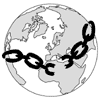TRUE DEMOCRACY Summer 2002 TABLE OF CONTENTS
16341 Street NW, Suite 1001, Washington, DC 20006 ~ Phone: (202) 7B3-8046, Fax: (202) 783-8046 ~ email: woatusa@woatusa.org, web: www.woatusa.org
The World Organization Against Torture USA is a member ot the international SOS Torture Network

Morton Sklar, Director |
Torture in the United States
Part Four: Prisons
http://www.woatusa.org/CAT/catreport/prisons.html
PRISON CONDITIONS AND
THE
TREATMENT OF PRISONERS
prepared by
Mark Sherman
International Criminal Law Committee,
Criminal
Justice Section, American Bar Association
and
Laura Magnani and Bonnie Kerness, Criminal
Justice
Program, American Friends Service Committee
with additional contributions by
Jenni Gainsborough, ACLU Prison Project
Cristie Donner, Prisoner Rights Project,
Rocky Mountain Peace and Justice Center
Corey Weinstein and Luis Talamantez,
Pelican Bay Information Center
Kathi Westcott, Coalition Against STOP
Pat Rengel, Amnesty International USA
Charlie Sullivan, Citizens United for
the Rehabilitation of Errants
Deborah Robinson, World Council of
Churches and National
Council of Churches of Christ in the
U.S.A.
Shannon Murray and Carl Shasky, Maryland
Chapter,
National Campaign to Stop Control Unit
Prisons
Rick Wilson, International Human Rights
Law Clinic,
American University Law School
Robert McAlpine, the National Urban
League
Holbrook Teter, California Prison Focus
Tasker deGeneres, Criminal Lawyer,
Northbook, Illinois
SUMMARY STATEMENT
While some of the more overt forms of physical
torture that tend to be employed by repressive governments and paramilitary
groups worldwide are not authorized or practiced in the U.S. at either
the federal, state or local levels, there are a number of criminal justice
policies and practices that constitute "cruel, inhuman or degrading treatment
or punishment" of the type prohibited under Article 1 of the Convention
Against Torture, and under numerous other legally binding international
human rights instruments. Among the areas where the U.S. government is
not meeting its obligations to prevent highly abusive conduct of this type
are the following:
-
punitive violence and brutality in specially
created super-maximum and control unit prison facilities;
-
indefinite and arbitrary solitary confinement;
-
the practice of punitive "cell extractions";
-
conditions of detention of immigrants and
asylum seekers awaiting deportation;
-
prison rape and sexual abuse;
-
methods of prosecuting and detaining juveniles;
-
treatment of the mentally ill in prisons;
-
police brutality through abusive use of chemical
sprays and dangerous methods of restraint and unnecessary use of force,
including electro-shock devices;
-
misuse of prison labor; and
-
reinstatement of "chain gangs" as a form of
punishment and harassment.
NEXT PAGE
PREVIOUS ARTICLE
NEXT ARTICLE
